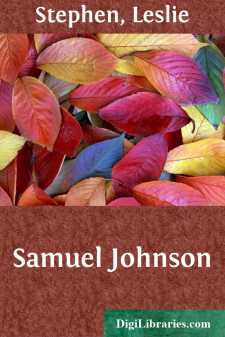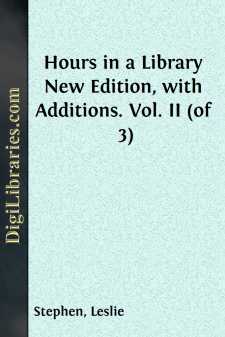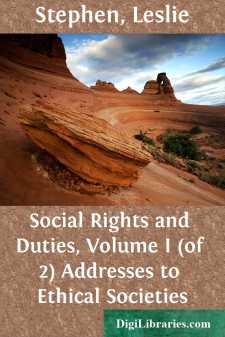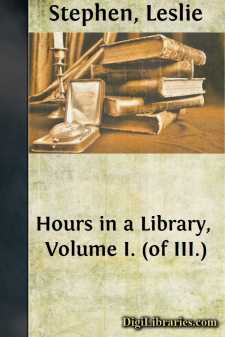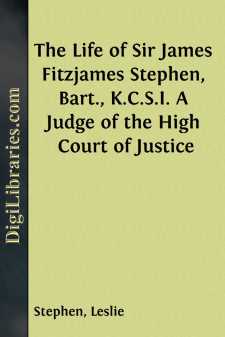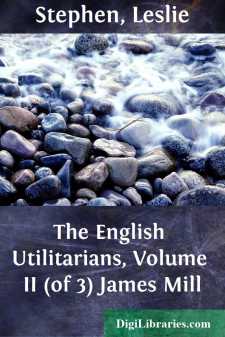Categories
- Antiques & Collectibles 13
- Architecture 36
- Art 48
- Bibles 22
- Biography & Autobiography 813
- Body, Mind & Spirit 142
- Business & Economics 28
- Children's Books 17
- Children's Fiction 14
- Computers 4
- Cooking 94
- Crafts & Hobbies 4
- Drama 346
- Education 46
- Family & Relationships 57
- Fiction 11829
- Games 19
- Gardening 17
- Health & Fitness 34
- History 1377
- House & Home 1
- Humor 147
- Juvenile Fiction 1873
- Juvenile Nonfiction 202
- Language Arts & Disciplines 88
- Law 16
- Literary Collections 686
- Literary Criticism 179
- Mathematics 13
- Medical 41
- Music 40
- Nature 179
- Non-Classifiable 1768
- Performing Arts 7
- Periodicals 1453
- Philosophy 64
- Photography 2
- Poetry 896
- Political Science 203
- Psychology 42
- Reference 154
- Religion 513
- Science 126
- Self-Help 84
- Social Science 81
- Sports & Recreation 34
- Study Aids 3
- Technology & Engineering 59
- Transportation 23
- Travel 463
- True Crime 29
Samuel Johnson
by: Leslie Stephen
Description:
Excerpt
CHAPTER I.
CHILDHOOD AND EARLY LIFE.
Samuel Johnson was born in Lichfield in 1709. His father, Michael Johnson, was a bookseller, highly respected by the cathedral clergy, and for a time sufficiently prosperous to be a magistrate of the town, and, in the year of his son's birth, sheriff of the county. He opened a bookstall on market-days at neighbouring towns, including Birmingham, which was as yet unable to maintain a separate bookseller. The tradesman often exaggerates the prejudices of the class whose wants he supplies, and Michael Johnson was probably a more devoted High Churchman and Tory than many of the cathedral clergy themselves. He reconciled himself with difficulty to taking the oaths against the exiled dynasty. He was a man of considerable mental and physical power, but tormented by hypochondriacal tendencies. His son inherited a share both of his constitution and of his principles. Long afterwards Samuel associated with his childish days a faint but solemn recollection of a lady in diamonds and long black hood. The lady was Queen Anne, to whom, in compliance with a superstition just dying a natural death, he had been taken by his mother to be touched for the king's evil. The touch was ineffectual. Perhaps, as Boswell suggested, he ought to have been presented to the genuine heirs of the Stuarts in Rome. Disease and superstition had thus stood by his cradle, and they never quitted him during life. The demon of hypochondria was always lying in wait for him, and could be exorcised for a time only by hard work or social excitement. Of this we shall hear enough; but it may be as well to sum up at once some of the physical characteristics which marked him through life and greatly influenced his career.
The disease had scarred and disfigured features otherwise regular and always impressive. It had seriously injured his eyes, entirely destroying, it seems, the sight of one. He could not, it is said, distinguish a friend's face half a yard off, and pictures were to him meaningless patches, in which he could never see the resemblance to their objects. The statement is perhaps exaggerated; for he could see enough to condemn a portrait of himself. He expressed some annoyance when Reynolds had painted him with a pen held close to his eye; and protested that he would not be handed down to posterity as "blinking Sam." It seems that habits of minute attention atoned in some degree for this natural defect. Boswell tells us how Johnson once corrected him as to the precise shape of a mountain; and Mrs. Thrale says that he was a close and exacting critic of ladies' dress, even to the accidental position of a riband. He could even lay down aesthetical canons upon such matters. He reproved her for wearing a dark dress as unsuitable to a "little creature." "What," he asked, "have not all insects gay colours?" His insensibility to music was even more pronounced than his dulness of sight. On hearing it said, in praise of a musical performance, that it was in any case difficult, his feeling comment was, "I wish it had been impossible!"
The queer convulsions by which he amazed all beholders were probably connected with his disease, though he and Reynolds ascribed them simply to habit....


